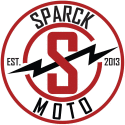We noticed you are blocking ads. DO THE TON only works with community supporters. Most are active members of the site with small businesses. Please consider disabling your ad blocking tool and checking out the businesses that help keep our site up and free.
You are using an out of date browser. It may not display this or other websites correctly.
You should upgrade or use an alternative browser.
You should upgrade or use an alternative browser.
1976 Honda cj 360
- Thread starter Bromz
- Start date
also - Any bicycle shop will give you one (or charge you a couple of pennies for it) They have all that stuff laying around to fix the old stuff that comes in.
And - It doesn't even need to be that perfect. Ask for a pitted one and they will for sure give it to you (if $0.49 will break the build budget)
-Ben
And - It doesn't even need to be that perfect. Ask for a pitted one and they will for sure give it to you (if $0.49 will break the build budget)
-Ben
Bromz
Been Around the Block
Well she runs! Used some wire to make sure the oil passages were clear. The I replaced the gasket on the side cover. Fired her up let the bike run for about 30 seconds. Shut it off then kept it level took the tappet covers off and the tappets were wet with oil and the was oil in both oil baths. So fired it up a few times adjusting idle. I still have a rattle in the top end. Checked tappets and I think they are dead on. Could be the cam chain I guess? Any ideas?
Chris
Chris
omg, heres to hoping it still holds gas after cleaning.  i hope you got nuclear powered, industrial apples. i am really interested to see how well this works.
i hope you got nuclear powered, industrial apples. i am really interested to see how well this works.
you may want to toss a handful of nuts and bolts and tumble the thing in the clothes dryer for an hour or 10...thats what i did.
mine just had a couple spots of rust and it was still amazing what came out.
you may want to toss a handful of nuts and bolts and tumble the thing in the clothes dryer for an hour or 10...thats what i did.
mine just had a couple spots of rust and it was still amazing what came out.
I'm with that guy ^. That seems like a crazy amount of rust. You might have to go the phosphoric acid route and actually convert the rust, then line it. Mine wasn't anywhere close to that bad. The vinegar worked, but I still had to etch it to prevent it from flash rusting almost immediately.
I had the same experience with an equally bad tank, but I half assed the baking soda neutralization and the thing flash rusted on me (and the sealer stripped out).
I used about a third a box (whatever a box is - medium? normal? probably a pound) because it was my roommates and I didn't want to leave him without baking soda.
I put it in water and washed the thing out.
the next time I'm going to just dump the entire pound in there dry and shake the tank like crazy. Then I
'll rinse the thing out with water. (or more likely I'll get the chemical stuff.)
But yeah - Apple Cider Vinegar works great. WalMart sells it for $3.97 a gallon, so it was $16 for my tank. Not bad, but really not THAT much cheaper than doing it with the sealer tank kits (I still paid $18 for the POR15 sealer shipped so $35 vs $50? I don't know that its worth the savings.)
I used about a third a box (whatever a box is - medium? normal? probably a pound) because it was my roommates and I didn't want to leave him without baking soda.
I put it in water and washed the thing out.
the next time I'm going to just dump the entire pound in there dry and shake the tank like crazy. Then I
'll rinse the thing out with water. (or more likely I'll get the chemical stuff.)
But yeah - Apple Cider Vinegar works great. WalMart sells it for $3.97 a gallon, so it was $16 for my tank. Not bad, but really not THAT much cheaper than doing it with the sealer tank kits (I still paid $18 for the POR15 sealer shipped so $35 vs $50? I don't know that its worth the savings.)
Cursh said:I put it in water and washed the thing out.
That's where you messed up.
Neutralizing acid with baking soda creates salt as a byproduct. Adding water to the mix is a sure way to rust things.
Rinse with alcohol or diesel, instead.
SONICJK
Reminds me of...me No, I'm sure of it. I hate him
Cursh said:I had the same experience with an equally bad tank, but I half assed the baking soda neutralization and the thing flash rusted on me (and the sealer stripped out).
I used about a third a box (whatever a box is - medium? normal? probably a pound) because it was my roommates and I didn't want to leave him without baking soda.
I put it in water and washed the thing out.
the next time I'm going to just dump the entire pound in there dry and shake the tank like crazy. Then I
'll rinse the thing out with water. (or more likely I'll get the chemical stuff.)
But yeah - Apple Cider Vinegar works great. WalMart sells it for $3.97 a gallon, so it was $16 for my tank. Not bad, but really not THAT much cheaper than doing it with the sealer tank kits (I still paid $18 for the POR15 sealer shipped so $35 vs $50? I don't know that its worth the savings.)
A gallon I muriatic acid is 7 bucks at lowes
Phosphoric Acid is better than muriatic acid. Phosophoric acid converts iron oxide into ferric phosphate while not removing the good steel.( 2 H3PO4 + Fe2O3 → 2 FePO4 + 3 H2O) Naval jelly is a gel form of phosphoric acid. Muriatic acid is hydrochloric acid. While it's commonly used to pickle steel, it doesn't work well with all alloys. It is especially problematic with high carbon steels where it can cause hydrogen embrittlement (ie. cracking). You can also use diluted muriatic acid to make unrusted metal rust.
I would not use muriatic acid on a spring. Most spring steel is 5160 which is a carbon steel. That's asking for hydrogen embrittlement, which can lead to cracking and failure.Sonreir said:Muriatic acid for the win.
Before and after pics of the springs on my shocks.
That stuff will eat just about anything (including chrome).
That's for a plated fastener where an acid cleaning solution is used after the electroplating process. The same doesn't go for a rusted spring where the chrome has been eaten away or where you've etched it off. Also, time and temp depends on the alloy- it's anywhere from 2 hours to 24 hours. Newly manufactured springs, especially automotive, are never introduced to acid. They are heat-treated and mechanically descaled, often in a wheelabrator, before plating or powder coat. Many use dip spin plating techniques that are considered acid free. It's just not worth the risk, especially when there are equal or better methods to remove rust.








